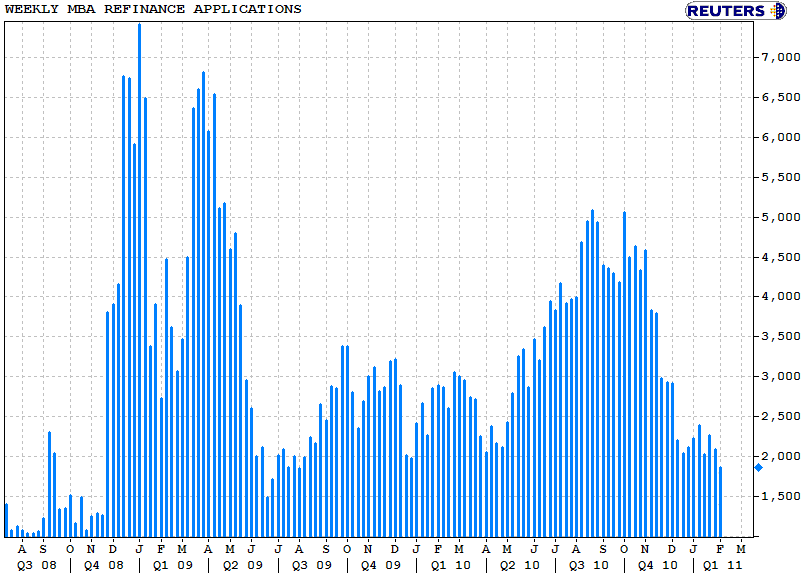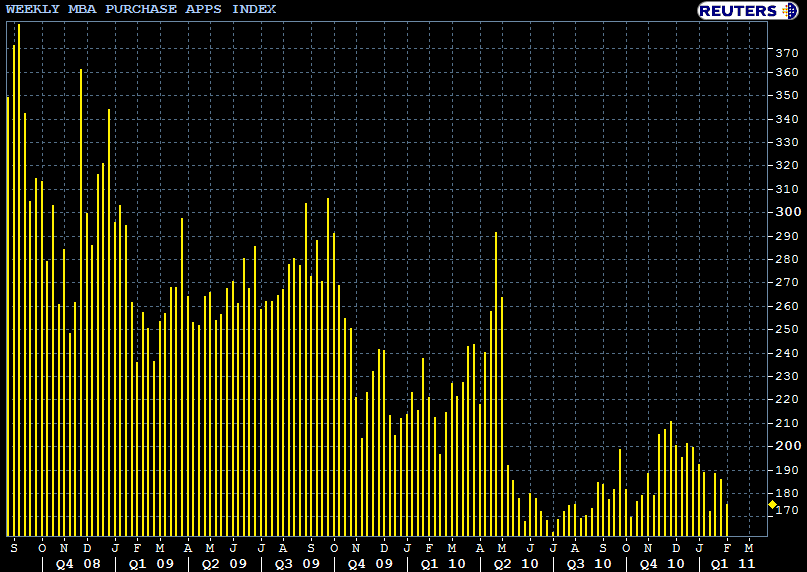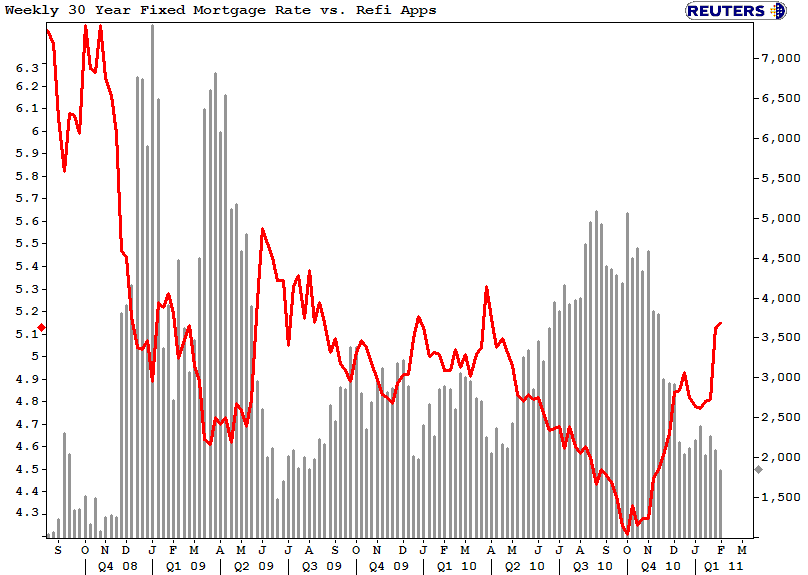Blog

Home Loan Demand Declines as Rising Rates Reduce Affordability
The Mortgage Bankers Association (MBA) todayrnreleased its Weekly Mortgage Applications Survey for the weekrnending February 11th, 2011. </p
The MBA’s loan application survey covers overrn50% of all U.S. residential mortgage loan applications taken by mortgagernbankers, commercial banks, and thrifts. The data gives economists a snapshotrnview of consumer demand for mortgage loans. In a falling mortgage raternenvironment, a trend of increasing refinance applications implies consumers arernseeking out lower monthly payments. If consumers are able to reduce theirrnmonthly mortgage payment and increase disposable income through refinancing, itrncan be a positive for the economy as a whole (may boost consumer spending. Alsornallows debtors to pay down personal liabilities faster). A trend of decliningrnpurchase applications implies home buyer demand is shrinking.</p
Excerpts from the Release…</p
The Market Composite Index, a measure ofrnmortgage loan application volume, decreased 9.5 percent on a seasonallyrnadjusted basis from one week earlier. On an unadjusted basis, the Indexrndecreased 7.9 percent compared with the previous week.</p
The Refinance Index decreased 11.4 percentrnfrom the previous week and is the lowest Refinance Index recorded in the surveyrnsince the week ending July 3, 2009. The four week moving average is downrn6.2 percent. The refinance share of mortgage activity decreased to 64.0 percentrnof total applications from 66.6 percent the previous week. This is the fourthrnstraight week the share has declined.</p
 </p
</p
The seasonally adjusted Purchase Indexrndecreased 5.9 percent from one week earlier. The unadjusted Purchase Indexrndecreased 0.9 percent compared with the previous week and was 18.2 percentrnlower than the same week one year ago. The four week moving average isrndown 1.9 percent.</p
 </p
</p
The average contract interest rate forrn30-year fixed-rate mortgages decreased to 5.12 percent from 5.13 percent, withrnpoints increasing to 0.85 from 0.84 (including the origination fee) for 80rnpercent loan-to-value (LTV) ratio loans. The effective rate alsorndecreased from last week.</p
The average contract interest rate forrn15-year fixed-rate mortgages increased to 4.34 percent from 4.29 percent, withrnpoints decreasing to 0.85 from 1.02 (including the origination fee) for 80rnpercent LTV loans. This is the highest contract 15-year rate observed in thernsurvey since April 2010. The effective rate also increased from lastrnweek.</p
 </p
</p
“Mortgage rates remained above 5 percent last week, up almost a full percentage point from their October lows, and refinance volume continued to drop,” said Michael Fratantoni, MBA’s Vice President of Research and Economics. “Applications for home purchases also declined on a seasonally adjusted basis. Buyers have not returned to the market as rising rates have reduced affordability, to some extent.”
All Content Copyright © 2003 – 2009 Brown House Media, Inc. All Rights Reserved.nReproduction in any form without permission of MortgageNewsDaily.com is prohibited.
Latest Articles
By John Gittelsohn August 24, 2020, 4:00 AM PDT Some of the largest real estate investors are walking away from Read More...
Late-Stage Delinquencies are SurgingAug 21 2020, 11:59AM Like the report from Black Knight earlier today, the second quarter National Delinquency Survey from the Read More...
Published by the Federal Reserve Bank of San FranciscoIt was recently published by the Federal Reserve Bank of San Francisco, which is about as official as you can Read More...

Comments
Leave a Comment